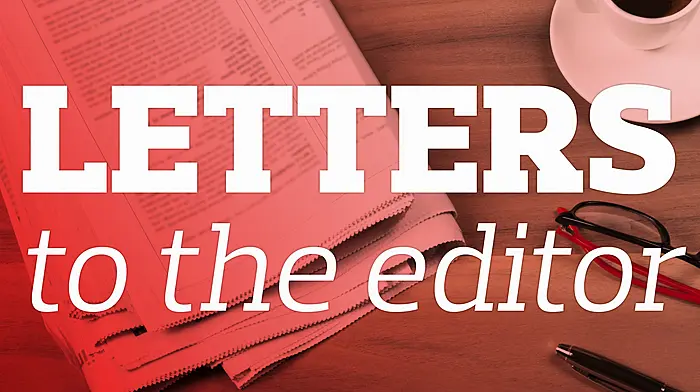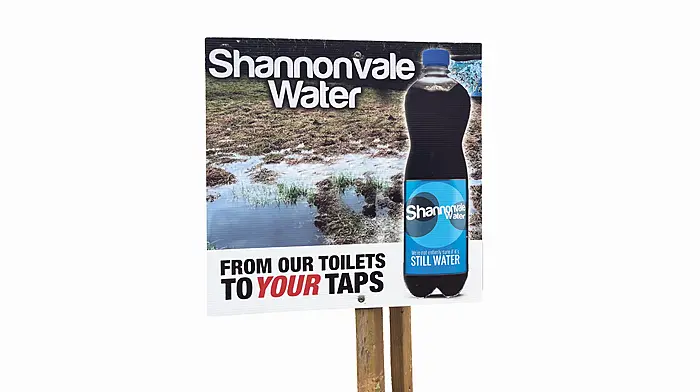WE'RE well into 2024 and still the cost of living crisis continues unabated.
Anybody shopping for a mortgage, filling up their car or even buying everyday products like olive oil and chocolate will be slack-jawed at the prices being charged.
While much of this is due to global pressures like climate change, transport costs, the price of oil and, yes, Covid (still), these are not things that ordinary people think about impacting on their day-to-day lives as they try to keep their households afloat.
While some costs are expected to ease this year, others will remain stubbornly challenging.
Throughout this article, financial expert Sinead Ryan takes a closer look at key areas of personal finance and offers some advice on how you can make your money go further this year and into the future.
Sinead Ryan is a journalist, broadcaster, author, and podcast host with widely acknowledged expertise in the area of finance.
She presents The Home Show on Newstalk on Saturdays at 8 am as well as the associated podcast.
Food
Increases of up to 25% have been seen on many products since 2022 and the good news is that food inflation has been falling since May 2023.
The bad news is that some products remain hugely expensive, and this is down to drought or other weather related conditions particularly in vegetable oils and fruit- producing countries like Spain, Italy and Greece, and cocoa and sugar producers in Africa and elsewhere.
The outlook for 2024 is that while food inflation levels have peaked, it simply means prices are no longer going up.
What to do
The best advice is to shop around for your non-staple and non-perishable products like detergents and paperware; make sure you are utterly disloyal to loyalty cards (keep all the apps on your phone so you’re never caught out) and to only buy what you know you will use to avoid food waste.
Buying between friends or family for bulk items is a good way to bag a bargain.
Shopping after 4 pm, or whenever your supermarket releases ‘use by’ foods for the day can mean a saving on dinner.
Meal planning and batch cooking at the weekend can save cash on those work lunches which cost so much.
Motoring
The big ticket item here is the cost of fuel.
In the past couple of years, when prices were at their highest, largely due to the ongoing invasion of Ukraine by Russia, oil prices rose.
To counter the trickle-down effect to petrol pumps, the Government subsidised motorists by cutting the tax levy on petrol and diesel by 20c and 15c respectively.
These are now being reimposed.
The last was on April 1st (when 4c and 3c were added back), and we will see another in October.
This leaves a litre of petrol hovering at the €1.80 mark.
Add to that, the imposition of pre-agreed carbon taxes will see prices rise throughout the year.
Until things are more settled globally, it is unlikely this will change, however, in an election year, it’s always worth awaiting the budget (also October) to see if a bit of political populism comes into play.
In insurance costs, these are finally levelling out for consumers as measures to cap awards for damages come into being.
It remains to be seen how courts will interpret them, but it is a good move for motorists who pay so much due to the incredibly high awards made for soft tissue injuries like whiplash, compared to other European jurisdictions.
We need thicker necks, perhaps.
What to do
Shop around for insurance each year, or use a broker to do it for you.
Insurers are like bookies – just because you’re a bad bet for one, doesn’t make you expensive for another.
Utility bills
We import 100% of our oil needs and just 40% of our energy comes from renewables.
Although things are definitely improving in that regard, it means we are at the mercy of others when it comes to our household gas, oil and electricity bills.
Many providers have started reducing their prices since the wholesale market has settled from its highs of 2022.
But gas remains very expensive (14.69c per kWh, compared to EU average 12.07c). That’s up from just 6.21c at the end of 2021.
While the three energy credits (amounting to €600) announced in the last budget have been used up, and the Government says it will not be repeating them, keep an eye on what is supposed to be a ‘giveaway’ budget later in the year.
There will be huge pressure for handouts again, unless prices drop substantially.
It will be offset either way by the extra €10 per annum being imposed on all households for the next 40 years to pay for a new grid, starting this year.
What to do
Get hold of your bills for 2023 and see if you can get cheaper prices using bonkers.ie or switcher.ie to compare.
If you have a smart meter, it will be very accurate and worthwhile.
Beyond that, the ‘old-fashioned’ advice of closing windows, using draught excluders and turning on household appliances at off-peak times is the most valuable thing you can do.
Vampire energy (plugs and sockets left on overnight) eat up electricity. Switch them off.
Consider investing in renewable options like solar or wind power. It might seem an expensive outlay to begin with, but over time you’ll reap the rewards.
Installation grants are available (www.seai.ie for more) and if you get things right you might even find yourself selling excess energy back to the national grid.
Pensions
The much vaunted, and long-awaited Auto Enrolment for pensions comes into place in 2024. Allegedly.
First mooted 28 years ago, we are told it is finally happening. It will compel every employee between the ages of 23 and 60 who is not currently in a pension plan, and earning over €20,000 a year to be enrolled in one.
The employer and employee will initially pay 1.5% of salary while the Government tops it up with 0.5%.
It is exceptionally complicated and expensive to run, hence the delays, but it is a very good idea and anybody offered an occupational pension membership in work should jump at the chance.
Pensions are often termed a ticking time-bomb. A third of people have no pension provision, rising to 50% among the self-employed.
The maximum state pension is just over €13,000 which may, or may not, be sustainable into the future.
At present there are five taxpayers for every pensioner; by 2050 there will be just two.
What to do
Do your future self a favour, and join a pension scheme, or at least Auto Enrolment when it comes.
If you are unsure how to proceed in this regard, talk to a local pension broker or financial adviser.
Mortgages
Inflation has finally lowered nearer the magic 2% level that is its target. But this has been at great cost to borrowers who have seen interest rates climb since mid-2022 right up to September 2023 in 10 successive hikes, to try and curb the runaway ‘silent mugger’ that is inflation, as former US President Ronald Reagan termed it.
However, even if the European Central Bank makes its first move to drop rates, as expected at its June meeting, it will be a long time before most of us see it reflected in our monthly repayments.
Monetary policy is a bit like weight gain: easy to put on; very hard to get down.
The drop will be in small increments over a long period to avoid it being inflationary: when interest rates reduce, people borrow more.
That, in turn feeds inflation and the whole cycle begins again.
The only borrowers to see an immediate difference will be those on trackers.
Their interest rate is directly tied to the ECB rate, currently 4.5%. Any reduction will mean a lower repayment for them.
Variable rate holders will have to wait until retail banks here (e.g. AIB, Bank of Ireland and PTSB) follow through.
They don’t have to and will likely point out that they held back from increasing rates when they started to rise.
Economists don’t expect much of a cut this side of Christmas.
The worrisome group are the 70,000 or so coming off fixed-rates this year.
They have been insulated from the hikes and will get a big shock when they are offered their new rate.
Some will suck it up, others will shop around and switch but a stubborn number of loans will end up in arrears.
They need to engage with the MARP (mortgage arrears process) to avoid legal action.
What to do
If you’re due to finish a fixed-rate term, check well in advance for what’s available to you. The Competition and Consumer Protection Commission has up-to-date rates on its website (ccpc.ie).
Calculate your loan-to-value ratio (divide your outstanding balance by your house’s value and multiply by 100).
You may be in a better position come the new rate offers.
Mobile phones
Most of us couldn’t conceive of being without our phone these days and for that, we’d probably consider them good value; a €25 to €70 a month bill we really can’t do without.
However, with new technology being introduced all the time, providers will have to charge more.
If you’re still with the same provider, there are new entrants in this busy market worth a look: GoMo has a rolling monthly plan at €14.99; 48 has a SIM-only contract for €12.99 while AnPost has a €15 pre-pay plan.
What to do
Assess your usage. If you’re only using it for calls, texts and some internet, you’re better off with SIM only.
Who needs the latest model iPhone for €1,000?
Credit Cards
The most expensive way of borrowing money is short-term at a high rate. That’s the definition of a credit card.
Rates up to 23% are common and it means everything you buy costs a quarter more, if you don’t fully clear your card each month.
Using the CCPC.ie’s credit card calculator reveals that paying off €3,000 at the minimum payment (€60 per month) would take a whopping 14 years … and that’s with nothing else on the card.
In 2024 it’s likely your interest rate won’t go up – it doesn’t need to; you’re being ripped off enough.
What to do
Get rid, cut it up, bin it. Your debit card can be used for everything, and better still, it’s your own money.
Transfer your debt to a 0% rated card (most banks have one), to clear it faster, but don’t add any more expenditure – it will be charged at the full rate.
Borrowing
All loans are affected by high interest rates, not just mortgages. Whether it’s for a car, education or new solar panels, it’s worth comparing rates to see what’s available.
Bear in mind, the longer the term, the cheaper the monthly repayments, but the more expensive the loan will cost over the term.
Credit unions offer super rates for members, so include them too.
What to do
Borrow over the shortest term you can afford. Compare rates on ccpc.ie and you don’t need to borrow with your own bank.
Health Insurance
VHI has announced it is to withdraw some of its most popular plans leading to some having to move policy or company.
Prices have increased from all three providers and 2024 is proving to be an expensive year for the 53% of the population with private cover.
Medical inflation is running at a higher level than other markets, with procedures, treatments and drugs all costing more.
But people can be very slow to switch insurer, believing (incorrectly) that their loyalty counts for something.
With €1,500 per adult being required for a half decent, mid-level plan it’s an expensive part of the household budget, and getting more so for the rest of 2024.
What to do
Decide what you can afford, and call all three providers (Irish Life Health, Laya Healthcare and VHI), asking them for their most comprehensive plan, for that amount, and to include ‘corporate’ plans.
These are the policies created for big companies, often at better value, but given obscure names so that they don’t look like the ‘household name’ familiar products.
You are entitled to buy one of these if it’s better value but you won’t know, if you don’t ask.
The regulators website is hia.ie and it has a comparison tool across the market.
Saving for the future
Savers have been mightily stung for the last decade or so, earning nothing on their savings. But in the last couple of years, rising interest rates meant they are finally getting something.
Banks have been making a fortune on your money by you leaving it on deposit, and unless you need the cash for something in the next 3-5 years, you’re crazy to leave it languishing there.
If you like the guarantee of deposits, there’s nothing stopping you from putting your cash in a European bank.
Raisin.com is a well-known, trusted comparison site which compares deposits across the continent.
What to do
Put spare cash into your pension, or pay down debt with it.
Anything is better than leaving it sit in inflation-battered deposits.
Remember, if you’re over 65 and have income under €18,000 (€36,000 for couples) you do not have to pay DIRT tax.
Investment scams
2024 will be the year an investment scam makes its way to you.
Gardai report fraud has risen 30% in the last 12 months with over 9 in 10 people saying they’ve received a text, email or phone call from a fake organisation in the last year.
Investment fraud, where you are sold a policy or product purporting to offer an inflation-beating return, is up 77%.
This is leaving thousands of people out of pocket, their money stolen with no comeback.
Bank of Ireland has recently written to over 1m customers recently warning them of scammers.
Websites can be cloned, legitimate-looking documents and spreadsheets can fool, while shares, bonds and cryptocurrency products can all be made to look attractive.
Red flags include an unsolicited offer, often by social media, offering a big return for a very short period of time, with little or no risk.
It will be urgent, one-time-only and a very convincing phone call or follow up will put pressure on you.
You may be told it’s a ‘secret’ offer so not to tell anyone.
Once the money is transferred (usually by wire, or a money transfer website), it’s gone.
You may have important-looking documents about your ‘investment’ but they’re not worth more than the paper in your hand.
There are no products available anywhere in Ireland which promise to beat inflation and carry a guarantee of your money back, and any legitimate investment that does always carries a risk and a reputable broker is bound by law to point this out to you, explain it fully and only sell a product that matches your personal risk profile.
What to do
Only ever invest with a legitimate financial broker (with a street presence), or company regulated by the Central Bank (see centralbank.ie).
Check out the banking federation’s FraudSmart.ie website for tips on how to spot investment or banking fraud.
Only ever transfer money to a known company (e.g. Irish Life, Zurich etc) after checking them out to ensure that you’re not looking at a fake version.
Brokers are not permitted to take investment money from you in their own accounts.
In the history of money there has always been a ‘next big thing’, from tulips in the 17th century to cryptocurrency today.
Don’t believe anybody knows for sure.










